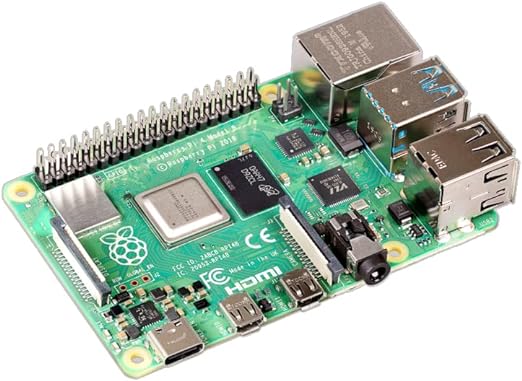
The Raspberry Pi, with its compact design and surprisingly robust performance, has earned itself a prominent place in the tech enthusiast and hobbyist community. One of the most interesting applications of this mini-computer is its use as a server in various contexts. In this article, we will explore the many possibilities offered by the Raspberry Pi as a server and analyze the reasons behind its growing popularity in this role.
[wpda_org_chart tree_id=29 theme_id=50]
Why choose Raspberry Pi as a Server
There are a number of factors that can convince you to choose Raspberry Pi as your server:
- unparalleled versatility
- reduced energy consumption
- cheap but powerful
- active community and ongoing support
Unparalleled Versatility
The Raspberry Pi is a true champion of versatility. Its low-cost and low-power architecture makes it suitable for a wide range of server applications. From web servers to file servers, home automation solutions to retro gaming servers, the Raspberry Pi is capable of performing multiple tasks without running into the limited resources of its hardware.
Reduced Energy Consumption
One of the main reasons for using the Raspberry Pi as a server is its low power consumption. Compared to larger, more powerful servers, the Raspberry Pi requires a fraction of the electricity, making it an eco-friendly and cost-effective option for long-term use. This feature makes it ideal to be left on continuously without worrying about high energy bills.
Cheap but Powerful
The affordable price of the Raspberry Pi is another reason why it is widely used as a server. For relatively little expense, you can get a mini-computer that can perform many of the more traditional server functions. This aspect makes it particularly attractive for those who wish to explore the potential of a home server without having to invest considerable sums in hardware.
Active Community and Continuous Support
The community surrounding the Raspberry Pi is an invaluable resource. Thanks to the large user base and active developers, you can access a variety of guides, tutorials, and solutions to make the most of your Raspberry Pi as a server. Extensive community support makes setting up and managing the Raspberry Pi server accessible even to those without extensive technical experience.

Raspberry Pi 4
See the best offer for the following models:
Customized Projects and Limitless Creativity
The Raspberry Pi’s customization ability is a strong point. Users can create custom projects, tailoring the Raspberry Pi to their specific needs. Whether you want to build a home automation server, a retro gaming server, or something else completely unique, the Raspberry Pi offers a flexible platform to express your creativity.
The Raspberry Pi can act as different types of servers, adapting to various needs. Some of the most common server types include:
- Web Server: Using software like Apache or Nginx, the Raspberry Pi can host a lightweight website or be employed for local development purposes.
- File Server: By configuring protocols such as FTP or Samba, the Raspberry Pi can be used as a file server, allowing data to be shared within the local network.
- Print Server: Thanks to its USB connectivity, the Raspberry Pi can be configured as a print server, making USB printers accessible over the network.
- Home Automation Server: By implementing automation software like Home Assistant, the Raspberry Pi can control smart devices in your home, acting as a centralized hub.
- Game Server: With projects like RetroPie, the Raspberry Pi can be turned into a retro game server, allowing access to a wide range of games via emulation.
- VPN Server: By setting up a VPN connection, the Raspberry Pi can act as a VPN server, providing a secure way to access your home network remotely.
- Database Server: Can be used with lightweight databases such as SQLite or MySQL for smaller, more specific applications.
- DNS Server: By setting up a local DNS server, the Raspberry Pi can handle name resolution within your network.
The versatility of the Raspberry Pi makes it suitable for many other applications, depending on your needs and technical skills.
Conclusion
In conclusion, the Raspberry Pi is gaining a reputation for being an excellent mini-server thanks to its versatility, low power consumption, affordable price, and ongoing community support. By harnessing the power of this small but mighty device, you can transform the Raspberry Pi into a multipurpose server that adapts to the needs of every technology enthusiast.